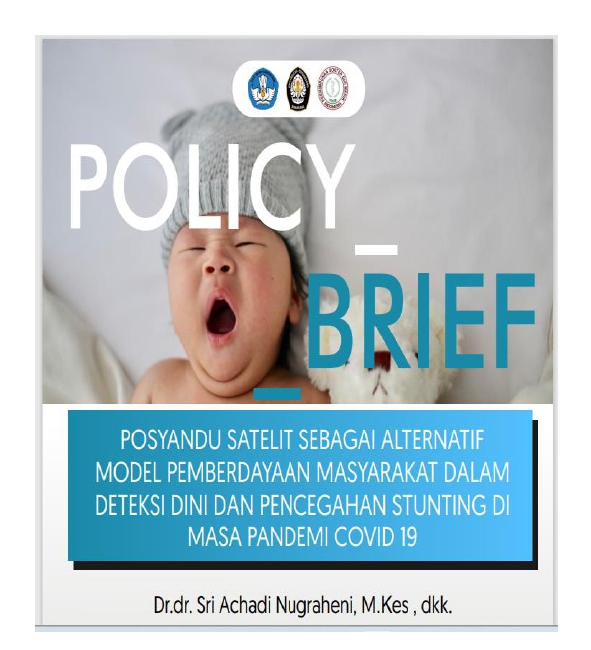The 2018 Basic Health Research (Riskesdas) data shows that Indonesia ranks as the fifth country in the world with the highest number of stunted children under five, reaching 30.8%. The golden period for stunting intervention starts from pregnancy until the child reaches two years old (the first 1,000 days of life). It must be acknowledged that the COVID-19 pandemic has impacted the optimal functioning of Posyandu, which serves as a community-based facility for monitoring child growth and development.
Dr. Sri Achadi Nugraheni, MKes, a lecturer in Public Health Sciences (MKM), along with a team of other lecturers from the Faculty of Public Health, developed the Satellite Posyandu model as a community-based early detection and prevention approach for stunting. Assistance programs have been implemented in 21 districts/cities, involving 1,191 Posyandu cadres, public health center (Puskesmas) health workers, as well as village and sub-district officials. Satellite Posyandu operates at the neighborhood level (RT/Dawis) and can be established as needed. The results of the assistance program have been compiled into a policy brief, which can serve as an advocacy tool for relevant stakeholders.
Access the Satellite Posyandu resources at: https://tinyurl.com/MediaPosyanduSatelit
Related Posts
- DETEKSI DINI PENCEGAHAN STUNTING BERBASIS PEMBERDAYAAN MASYARAKAT MELALUI POSYANDU SATELIT
Data Riskesdas 2018 menunjukkan Indonesia sebagai negara ke-5 di dunia dengan jumlah balita tertinggi mengalami…
- PERCEPATAN PENURUNAN ANGKA KEMATIAN IBU & BAYI (AKI-AKB) DAN PENURUNAN STUNTING DI KABUPATEN PEMALANG
Mengingat masih tingginya kematian ibu, bayi dan kasus stunting, Dinas Kesehatan Kabupaten Pemalang bersama dengan…
- Health Education on Non-Communicable Diseases for Rowosari Village Community by MKM FKM UNDIP Students
Students of the Master of Public Health Program, Faculty of Public Health, Diponegoro University (MKM…

